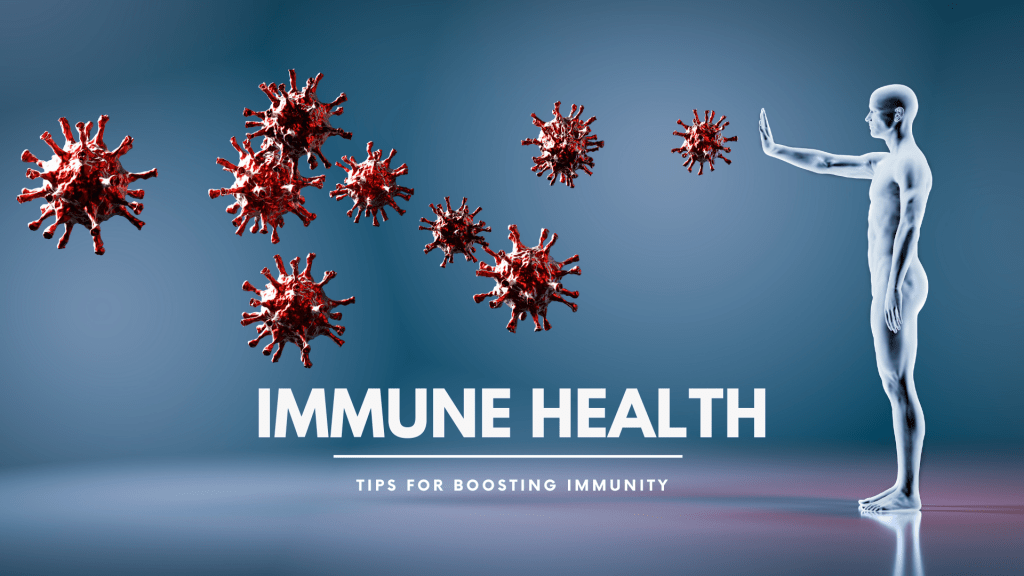In 2024, with the ongoing focus on health and well-being, understanding the crucial link between nutrition and immune health is more important than ever. A well-balanced diet rich in essential nutrients is key to supporting a robust immune system and defending against illness and infection. Here, we explore the role of nutrition in immune health and provide practical tips for boosting immunity in the year 2024.
Understanding Immune Health
The immune system is a complex network of cells, tissues, and organs that work together to defend the body against harmful pathogens such as bacteria, viruses, and fungi. A strong immune system is essential for maintaining overall health and well-being, as it helps prevent infections and promotes rapid recovery from illness.

The Link Between Nutrition and Immune Health
Nutrition plays a significant role in modulating immune function and supporting optimal immune health. Certain nutrients, such as vitamin C, vitamin D, zinc, and probiotics, have been shown to enhance immune function and help the body fight off infections more effectively. Consuming a diet rich in these nutrients can help strengthen the immune system and reduce the risk of illness.

Tips for Boosting Immunity Through Nutrition
Incorporating immune-boosting foods and nutrients into your diet can help support optimal immune function and enhance your body’s ability to ward off infections. Here are some practical tips for boosting immunity through nutrition in 2024:
Eat a Variety of Fruits and Vegetables
Aim to consume a diverse range of fruits and vegetables rich in vitamins, minerals, and antioxidants. Include colorful options such as berries, citrus fruits, leafy greens, bell peppers, and cruciferous vegetables like broccoli and Brussels sprouts.
Focus on Vitamin C-Rich Foods
Vitamin C is a powerful antioxidant that plays a key role in immune function. Incorporate foods high in vitamin C into your diet, such as oranges, kiwi, strawberries, bell peppers, and broccoli.
Get Adequate Vitamin D
Vitamin D is essential for immune health, and many people are deficient in this important nutrient, especially during the winter months when sunlight exposure is limited. Include vitamin D-rich foods in your diet, such as fatty fish like salmon and mackerel, egg yolks, fortified dairy products, and mushrooms.

Include Zinc-Rich Foods
Zinc is another essential nutrient for immune function, as it helps regulate immune cell function and supports the body’s ability to fight off infections. Incorporate zinc-rich foods into your diet, such as lean meats, shellfish, legumes, nuts, seeds, and whole grains.
Consume Probiotic Foods
Probiotics are beneficial bacteria that support gut health and play a role in immune function. Include probiotic-rich foods in your diet, such as yogurt, kefir, sauerkraut, kimchi, miso, and kombucha.
Stay Hydrated
Adequate hydration is essential for overall health and immune function. Drink plenty of water throughout the day to stay hydrated and support optimal immune health.
Limit Added Sugars and Processed Foods
Excessive consumption of added sugars and processed foods can weaken the immune system and increase the risk of illness. Limit your intake of sugary beverages, sweets, and processed snacks, and focus on whole, nutrient-dense foods instead.

Moderate Alcohol Consumption
Excessive alcohol intake can suppress immune function and increase susceptibility to infections. Limit your alcohol consumption to moderate levels and enjoy alcoholic beverages in moderation.

Practice Food Safety
Take steps to prevent foodborne illness by practicing proper food safety techniques, such as washing your hands before handling food, cooking meats thoroughly, and storing perishable foods properly.
Consider Supplementation if Necessary
In some cases, supplementation may be necessary to meet your body’s nutrient needs and support immune health. Consult with a healthcare professional or registered dietitian to determine if supplementation is appropriate for you and to ensure you’re taking the right supplements at the correct dosage.
Conclusion
In conclusion, nutrition plays a critical role in supporting immune health and reducing the risk of illness and infection. By incorporating immune-boosting foods and nutrients into your diet, staying hydrated, limiting processed foods and sugary beverages, practicing food safety, and considering supplementation if necessary, you can strengthen your immune system and enhance your body’s ability to defend against pathogens. Remember that a balanced diet and healthy lifestyle are key components of overall health and well-being, so prioritize nutrition and immune health in the year 2024 and beyond.







